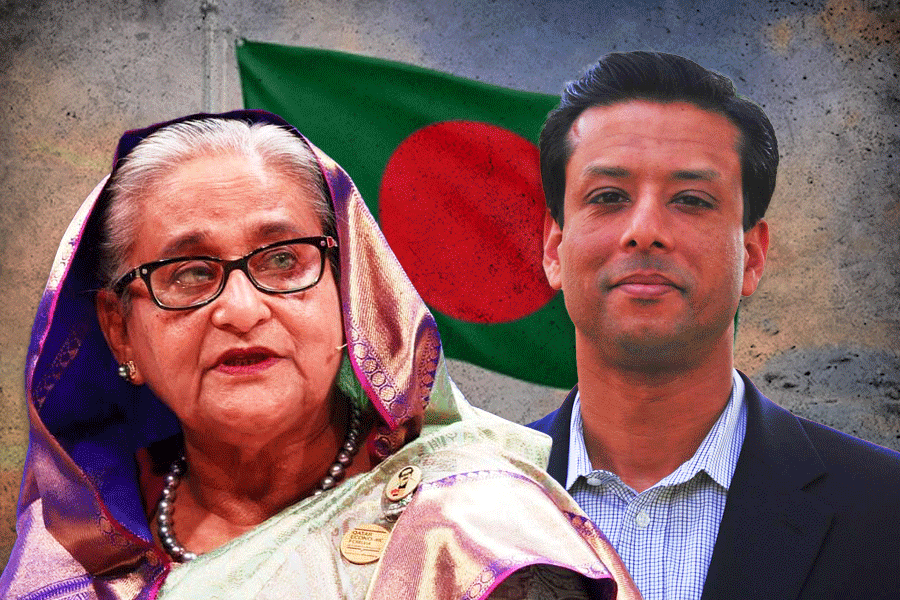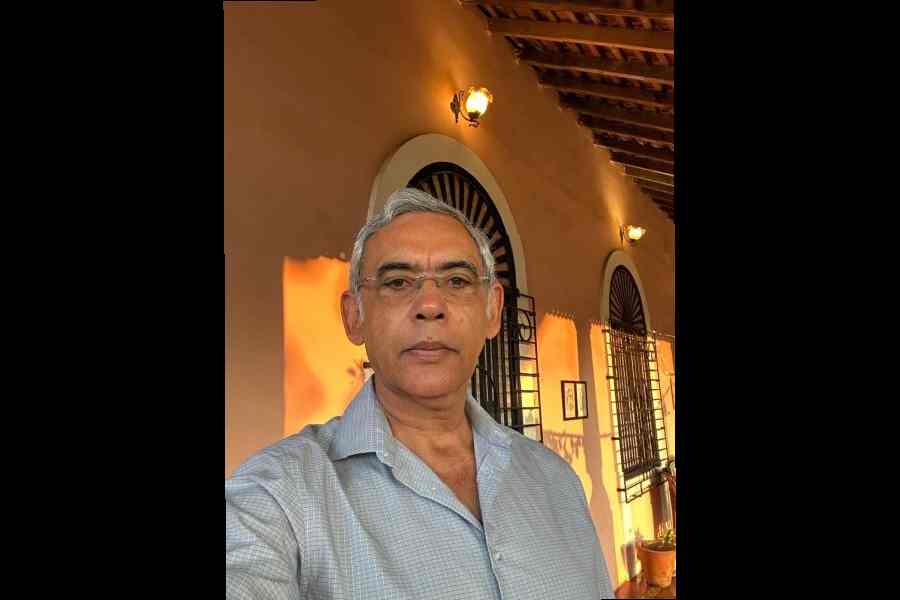
THE COURAGE OF HOPELESSNESS: CHRONICLES OF A YEAR OF ACTING DANGEROUSLY By Slavoj Zizek, Allen Lane, Rs 799
"To perceive, amidst the darkness, this light that tries to reach us but cannot - that is what it is to be contemporary." Slavoj Zizek's "dark"/"even darker" Chronicles of a Year, which tends to slip into narratives, is trying to be contemporary in this Agambenian sense. His hope/hopelessness is fundamentally Marxian: "the hopeless conditions of the society in which I live fill me with hope." Zizek believes "...only when we despair [like a chronic smoker, an abandoned lover, a conjecturing Lenin] and don't know any more what to do that change can be enacted..." If this is Zizek's optimism, his pessimism, which is deeper, is due to the fact that the exploding chaotic rage at global capitalism is appropriated by a Rightist populism rather than generating a 'new Left political project'. Rage is wasted in "pseudo-conflicts", rebellion loses steam and gets compromised in multiple ways, and a new power which emerges in the early stage of a rebellion is usually overwhelmed by "the immense task of organizing the new society". Zizek is wary of "the moderate and 'gentle' new emancipatory movements" - "pseudo-struggles [which] block the explosion of the true ones" - as well as assemblages in public places because these leave "untouched the key problem of how to pass from assembling protest to the imposition of a new power, of how this new power will function in contrast to the old one". Like every one, Zizek has noted the "extraordinary ability [on the part of the 'power edifice'] to use movements of contestation as a source of its own renovation".
All these take him to "the only true question": "do we endorse the predominant acceptance of capitalism as a fact of (human) nature, or does today's global capitalism contain strong enough antagonisms to prevent its indefinite reproduction?" It does, and at four levels: the commons of culture ["socialized forms of 'cognitive' capital" and "uncontrolled virtual money circulation"]; the commons of external nature ["derailment of entire life reproduction system on earth"]; the commons of internal nature ["new biogenetic technology"], and the commons of humanity itself, of the shared social and political space [the new forms of apartheid]. "It is this reference to 'commons' that justifies the resuscitation of the notion of communism: it enables us to see the progressive 'enclosure' of the commons as a process of proletarianization of those who are thereby excluded from the very substance of their lives." These antagonisms "cannot be controlled or even contained within the frame of global capitalist democracy". Zizek wants reinvention of 'communism' "as the name for what emerges after the failure of socialism". Such communism alone can restore to theory its emancipatory power. To Chomsky's position that all "we need to do is tell people, empirically, what is going on", Zizek asserts that "facts are facts, and they are precious, but they can work in this way or that. Facts alone are not enough. You have to change the ideological background" ( First As Tragedy, Then As Farce, 2009). Only a theory free from a dreamed alternative to the present crisis - the very drive of contemporary capitalism - can enable us to think "through to the end the deadlock of our predicament". Thus "thought is the courage of hopelessness" (Giorgio Agamben): The "true courage is to admit that the light at the end of the tunnel is probably the headlight of another train approaching us from the opposite direction". We need leaders who (like Lenin and Mao in some phases) can impose new customs to regulate everyday life.
Zizek's The Courage of Hopelessness is expectedly a critique and a search for a radical way out of capitalist globalization. It chronicles its impasses, Syriza, and return of religion as a political factor everywhere, 'battle for sexuality' and populist rage. Fundamental to all these, is "a radical class division across the entire globe, separating those protected by the sphere from those outside its cover". He makes powerful use of the metaphor of a self-enclosed cupola - rigged, though - "inhabited by one and half a billion 'winners' of globalization" and "three times the number left standing outside the door". It is an ethical imperative that we assume "our co-responsibility for the horrors outside it": "a momentary brutal disruption of normal life", "new slavery", "dirty pictures of financial pornography" and fundamentally, "deepening inequality and animosity". For Zizek, this involves a critical search for "a radical emancipatory movement": beyond modest gradual reformism, beyond reinvented socialism "in the guise of communitarianism and beyond populism", and cooperative commons (a new mode of production and exchange that leaves behind private and market relation). He concurs with Göran Therborn that the present holds great "possibilities of a good world". Zizek builds on that optimism to renew his case for reinvented communism as the only way to realize that potentiality ("How to Begin from the Beginning", Costas Douzinas and Slavoj Zizek, The Idea of Communism, 2010). The movement towards emancipatory transformation will need "an explosive combination of different agents", not by the classic Marxian proletariat alone. In fact, we are all proletarians now: "we are in the danger of losing everything". ("The communist hypothesis" in his First As Tragedy, Then As Farce). We should have the courage to "begin from the beginning over and over again", "to descend to the starting point" and seek out a new path through "constant self-revolutionizing". That is, we need to take communism as a movement, not as a point of arrival; as a problem, not as a final solution. We need to subvert capitalism's myriad ways of reinventing itself. For the present, the antagonism between the Included and the Excluded has the greatest subversive edge. We have a task: to create a new order against capitalist disorder. To make things move, we need dangerous utopias at the level of thought and forge "links between Leftists protests in the West with the Third World horrors". But for Zizek, the "openly admitted" Eurocentric, the emancipatory project will be European and "the big battlefield will be in Europe". With least theoretical or philosophical interventions in reflecting on chronicled episodes, the book is accessible. Recapitulations or reproductions of his earlier works help us trace continuities but deny us intellectual freshness. He seems to leave to the 'Third World' intellectuals, horrified by perpetual violence in their everyday life, the task of chronicling their life outside the cupola using the problematic binary of Insiders and Outsiders, and joining the Western emancipatory project.










